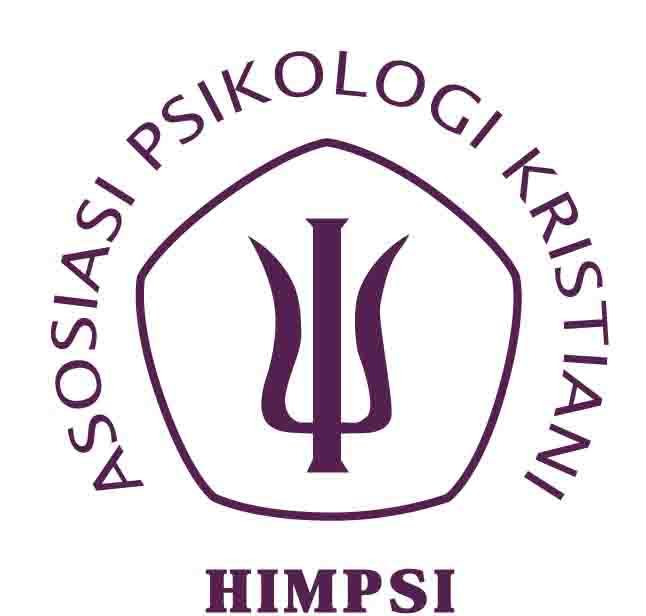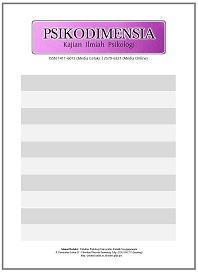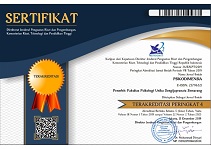Pendekatan Mindfulness dalam Menggambarkan Hubungan Rasa Syukur dan Kualitas Hidup pada Orang yang Hidup dengan Lupus
Abstract
Abstrak
Lupus (Systemic Lupus Erythematosus) atau SLE adalah penyakit autoimun kronis. Efek psikologisnya antara lain emosi yang tidak stabil, perasaan lemah, putus asa, cemas, takut dan memicu depresi. Intervensi terhadap emosi negatif dapat memperbaiki kondisi kesehatan klien. Salah satu caranya adalah menjaga dan memupuk emosi positif, seperti selalu bersyukur. Rasa syukur diketahui terkait dengan kualitas hidup seseorang. Intervensi mindfulness mampu membantu klien merasa bersyukur. Penelitian kualitatif klinis ini melibatkan tiga partsipan yang mengalami lupus. Mereka diajak berproses dengan melakukan Mindful Breathing, Mindful Gratitude Journal, Walking Meditation, Mindful Eating, Loving Kindness Meditation, dan Body Scan. Pengumpulan data dilakukan dengan wawancara dan alat diagnostik PANAS, GQ6, EQ-5D-5L dan VAS. Hasil intervensi menunjukkan bahwa ketiga partisipan mengalami peningkatan emosi positif, peningkatan rasa syukur, dan kualitas hidup yang lebih baik, juga membantu partisipan untuk merasa tenang, lebih menerima situasi, dan mampu melihat masalah dari perspektif yang lebih luas dan jelas sehingga mereka dapat mengatasi permasalahan lebih efektif.
Kata kunci: Rasa syukur, lupus, mindfulness, kualitas hidup.
Abstract
Systemic Lupus Erythematosus (SLE) is a chronic auto-immune disease. The psychological effects of SLE include unstable emotions, feeling weak, hopeless, anxious, afraid and can trigger depression. Intervening various negative emotions can bring changes to a better health condition. One way to achieve it is to keep and nurture positive emotions, such as always being grateful. Gratitude is known to be linked to one’s quality of life. One of the ways to generate gratitude is through Mindfulness Intervention. This qualitative clinical qualitative phenomenological study involves three adult participants currently dealing with lupus. They were invited to engaged in various Mindfulness Intervention such Mindful Breathing, Mindful Gratitude Journal, Walking Meditation, Mindful Eating, Loving Kindness Meditation, and Body Scan. Data collection was carried out by interviews using diagnostic instruments PANAS, GQ6, EQ-5D-5L and VAS. The result of the intervention indicated that the three participants had experienced increased positive emotions, increased gratitude and a better quality of life, also helps participants to feeling calm, more receptive to situations, and able to see problems from a broader and clearer perspective so that they can overcome deal with them more effectively.
Keywords: Gratitude, lupus, mindfulness, quality of life.Keywords
Full Text:
PDF (Bahasa Indonesia)References
Arif, I, S. (2016). Psikologi positif: pendekatan saintifik menuju kebahagiaan. Gramedia Pustaka Utama: Jakarta.
Aringer, M., Costenbader, K., Daikh, D., Brinks, R., Mosca, M., Goldman, R. R., Smolen, J.S. et al. (2019). 2019 European League Against Rheumatism/American College of Rheumatology Classification Criteria for Systemic Lupus Erythematosus. American College of Rheumatology, Vol. 71.
Cavrini, G., Devlin, N., Egmar, A., & Greiner, W. (2010). Development of the EQ-5D-Y: A child-friendly version of the EQ-5D. Article in Quality of Life Research. 19, 875–886.
Diener, E., Wirtz, D.,Tov, W., Prieto, C., Choi,D., Oishi,S., & Diener,R.B. (2010). New Well-being measures: short scales to sssess flourishing and positive and negative feelings. Social Indicators Research, 97, 143–156.
Daymon, C & Holloway, I. (2008). Metode-Metode Riset Kualitatif dalam Public Relations dan Marketing communication. Yogyakarta: Penerbit Benteng.
Eaton, R.J., Bradley, G., & Morrisey, S. (2014). Positive predispositions, quality of life and chronic illness. Psychol Health Med, 19, 473-89.
Esch, T., Winkler, J. Auwarter, V., Gnann, H. , Huber, R., & Schmidt, S. (2017). Neurobiological aspect of mindfulness in pain autoregulation: unexpected results from a randomized-controlled trial and possible implications for meditation research. Front. Hum. Neurosci. 10:674. doi: 10.3389/fnhum.2016.00674
Infodatin pusat data dan informasi kementrian kesehatan RI: situasi lupus di Indonesia. (2017). Retrieved July 19, 2019, from http://www.depkes.go.id/resources/download/pusdatin/infodatin/Infodatin-Lupus-2017.pdf.
Iverson, G. (1995). The need for psychological services for persons with systemic lupus erythematosus. Rehabilitation Psychology, Vol.40, No.1.
Kabat-Zinn, J. (2003). Mindfulness-Based Interventions in Context: Past, Present, and Future. American Psychological Association D12, 10, 144-156
Labbe, E.E. (2011). Psychology moment by moment: a guide to enhancing your clinical practice with mindfulness and meditation. Canada: Elise E. Labbe New Harbinger Publications.
McCullough, E.M. & Emmons, A. R. & Tsang, A. J. (2002). The grateful disposition: a conceptual and empirical topography. Journal of Personality and Social Psychology, 82, 112–127.
Oriza, I.I.D & Menaldi, A. (2010). Validasi skala syukur pada orang indonesia dalam K. W. Yuniarti, J.
E. Prawitasari, N. R. Hadjan, S. Retnowati, & T.H. Tyas (Eds.). Proceeding Konferensi Nasional II Ikatan Psikologi Klinis-Himpsi: Intervensi psikologis untuk meningkatkan kualitas hidup masyarakat indonesia (hal. 363-366). Yogyakarta: Ikatan Psikologi Klinis-Himpsi.
Oriza, I.I.D (2016). Pengaruh pemberian, permintaan, terima kasih, dan utang budi terhadap kesediaan mengabulkan. Disertasi.
Raco, J.R. (2010). Metode Penelitian Kualitatif, Jenis, Karakteristik, dan Keunggulannya. Jakarta: PT. Gramedia Widiasarana Indonesia.
Sari, N.P.W. (2016). Faktor pencetus gejala dan perilaku pencegahan systemic lupus erythematosus. Jurnal Ners, 11, 213-219.
Seligman, L & Reichenberg, L. W. (2010). Theories of Counseling and Psyhotherapy: Systems, Strategies, and Skill. Boston: Pearson.
Stahl, B & Goldstein, E (2010). A Mindfulness-Based Stress Reduction. Oakland: New Harbinger Publications
Suwendar, Fudholi, A., Andayani, T, M & Sastramihardja, H.S. (2017). Evaluasi Kualitas Hidup dengan Kuesioner EQ-5D pada Pasien Kanker Serviks Rawat Inap Sebelum dan Setelah Kemoterapi. Jurnal Farmasi Klinik Indonesia, 6, 1–10.
Thrash, T. M., Elliot, A. J., Maruskin, L. A., & Cassidy, S. E. (2010). Inspiration and the promotion of well-being: Tests of causality and mediation. Journal of Personality and Social Psychology, 98, 488-506. doi:http ://dx.doi.org/10.1037/a0017906
Toussaint, L., Sirois, F., Hirsch, J., Weber, A., Vajda, C., Schelling, J., Kohls, N., & Offenbacher, M. (2017). Gratitude mediates quality of life differences between fibromyalgia patients and healthy controls. Qual Life Res. Springer International Publishing Switzerland 2017. DOI 10.1007/s11136-017-1604-7
Wirtz, D., Stalls, J., Gordon, C. (2014). Gratitude and Spirituality: A Review of Theory and Research. Religion and Spirituality Across Cultures. Editor by Chu Kim-Prieto. USA: Springer
Yamasaki, K., Katsuma, R & Uchida,K. (2009). An intervention study of the effects of the coping strategy of ‘‘finding positive meaning’’ on positive affect and health. International Journal of Psychology, 4, 249-256
DOI: https://doi.org/10.24167/psidim.v21i1.3582
Print ISSN : 1411-6073 | online ISSN : 2579-6321 View My Stats

This work is licensed under a Creative Commons Attribution 4.0 International License.




















